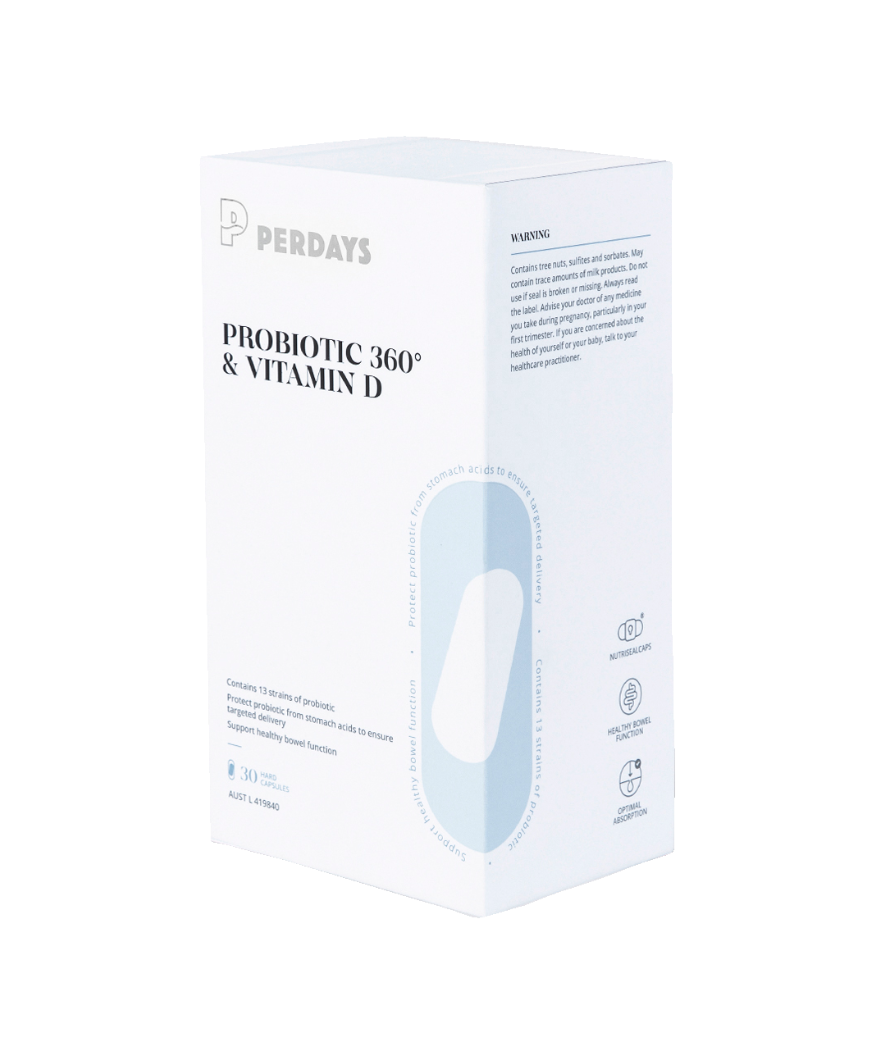Nurturing Kids’ Gut Health for Enhanced Wellbeing

As seasons change, parents often focus on nutrient-rich meals and extra rest to support their children's health. Yet one factor is still easily overlooked: gut health. About 70% of the body's immune cells are found in gut-associated lymphoid tissue. The gut microbiome, comprising a diverse community of bacteria, fungi, and other microbes, plays a crucial role in supporting and regulating this immune function.¹ A balanced microbiome also aids digestion and may communicate with the brain through the gut-brain axis, influencing energy levels and mood.² Establishing gentle, daily habits that support gut flora can therefore be a practical part of family life.
The gut immune link: Why it matters for children
A stable microbiome and a developing immune system reinforce each other. Seasonal diet changes, crowded classrooms or short courses of antibiotics can temporarily alter microbial balance. Some children may experience occasional bloating, irregular bowel movements or increased susceptibility to everyday sniffles. Fermented foods, such as yoghurt or kefir, provide live cultures, but their strain types and counts vary from batch to batch and can be difficult to quantify, especially for picky eaters. A low-sugar, allergen-free probiotic powder can complement these foods without changing the taste of regular meals or snacks.
A simple daily option
Lifespace Probiotic Powder for Children provides 10 billion colony-forming units (CFU) per 1 g serving from 15 well-documented strains, including Lactobacillus rhamnosus GG, used in a randomised, double-blind, placebo-controlled pediatric study³, and Bifidobacterium animalis ssp. The powder is unflavoured, dissolves quickly in cold drinks or yoghurt, and is shelf-stable, requiring no refrigeration. It contains no added sugar, artificial flavours, dairy or gluten, making it easy to integrate into most dietary routines for children aged 3 years and older.
Gut health, growth and everyday life
Beyond digestion, gut bacteria play a crucial role in the synthesis of certain B vitamins and vitamin K, essential nutrients involved in energy metabolism and maintaining normal bone health.⁵ Emerging research also suggests that microbial balance may influence the gut-brain conversation, potentially supporting concentration and learning.⁶ For children who eat erratically, a consistent intake of varied probiotic strains can help the nutrients they do consume be better utilised.
Small step, strong foundation
Supporting gut health does not require drastic dietary overhauls. Adding a measured daily serve of probiotic powder alongside fruit, vegetables, whole grains, and adequate sleep can be a practical, family-friendly routine that helps children stay comfortable and energised for school, play and new adventures.
References
1. Govers C, Calder PC, Savelkoul HFJ, et al. Nutrition and the immune system: a review of the role of nutrition in viral respiratory infections. Front Immunol. 2022;13:84153.
2. Dalile B, Van Oudenhove L, Vervliet B, Verbeke K. The role of short-chain fatty acids in microbiota gut-brain communication. Nat Rev Gastroenterol Hepatol. 2019;16:461 478.
3. Hojsak I, Snovak N, Abdović S, et al. Lactobacillus GG in the prevention of gastrointestinal and respiratory tract infections in children attending day care centres: a randomised, double blind, placebo-controlled trial. Pediatrics. 2010;125(5):e1171 e1177.
4. Singh A, D’Amore T, Johnson E, et al. Immune modulatory effects of Bifidobacterium lactis BI 04 in healthy adults: a randomised clinical trial. J Clin Med. 2021;10(15):3286.
5. Rowland I, Gibson G, Heinken A, et al. Gut microbiota functions: metabolism of nutrients and other food components. Eur J Nutr. 2018;57:1 24.
6. Liu L, Wang H, Chen X, et al. Gut microbiota and its role in child development: a systematic review. World J Pediatr. 2023;19:116 127.

